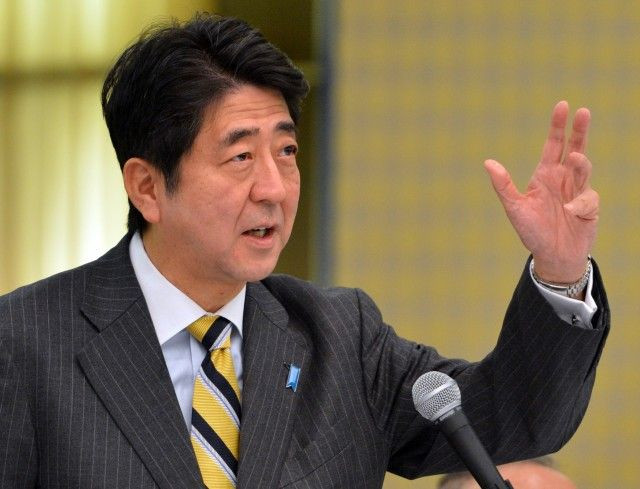Japanese Prime Minister Shinzo Abe Remains Tightlipped About His Aide’s Visit To North Korea

Japanese Prime Minister Shinzo Abe declined to comment on the arrival of one of his top aides in North Korea. Mystery shrouds the rare trip as Japan currently has no diplomatic ties with the embattled Asian nation, which is under international senctions for its nuclear arms program.
Abe’s special advisor Isao Iijima arrived in Pyongyang on Tuesday, North Korea's state news agency KCNA said. Japan's Kyodo news agency also reported Iijima was visiting North Korea, but it gave no details.
Japanese media speculated that Abe’s close confidante is in Pyongyang to reopen talks on Japanese abductees or to arrange a possible visit by Abe.
Abe told a parliamentary committee on Wednesday he had “no comment on reports regarding Iijima visiting North Korea,” the BBC reported.
“However, our fundamental objective is to resolve the abduction issue, including the return of all abductees, revelation of the truth, and the handover of the perpetrator to Japan,” he said.
In September 2002, North Korea admitted for the first time that it had abducted Japanese citizens in the 1970s and 1980s to train spies, and it apologized and promised to prevent any recurrence.
Currently, Tokyo has identified 17 Japanese citizens as victims of abduction by North Korea, of whom five returned to Japan in October 2002, for the first time in 24 years.
Whereabouts of the others remain unknown and Pyongyang is yet to provide an acceptable explanation, according to a 2012 report by Japan’s foreign ministry.
Abe had vowed to resolve the issue when he returned to power after elections last December.
South Korean officials said on Wednesday that Tokyo had not informed Seoul or Washington of the “unexpected” visit, raising concerns that the trip may undermine efforts in forging a coordinated approach toward containing Pyongyang's belligerence, Yonhap reported.
Abe had said Pyongyang’s nuclear test in February was “extremely regrettable” and “unacceptable” and that the test presented a challenge to the peace and security of the international community.
In recent months, tensions have been running high between Tokyo and Seoul over issues relating to historical animosities stemming from Japan’s 1910-45 occupation of Korea.
Toru Hashimoto, the outspoken mayor of major city Osaka and a co-leader of the emerging conservative Japan Restoration Party, stirred controversy on Monday by saying South Korea’s so-called comfort women of World War II were “necessary.”
In April, Abe sparked South Korea’s fury by defending a visit to North Korea by several Japanese lawmakers, including Deputy Prime Minister Taro Aso, to a controversial war-linked shrine.
© Copyright IBTimes 2024. All rights reserved.






















